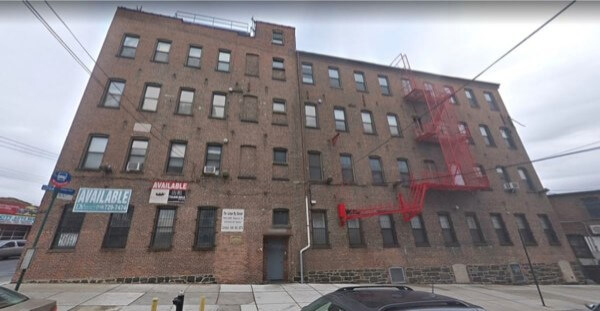By Jenna Bagcal
Tempers flared in College Point Monday, where dozens came together to protest the proposed homeless shelter that has been rumored to invade the neighborhood.
The protest comes days after City Councilman Paul Vallone (D-Bayside) confirmed the proposal had been submitted.
Vallone revealed Oct. 25 that the mayor’s administration confirmed that both the city and Department of Homeless Services had submitted a proposal for the site — located at 127-03 20th Ave. — to be turned into a homeless shelter. Both authorities also have an open request for proposal to build other homeless shelters across the city.
“As we’ve seen time and time again, the DHS is acting with a complete lack of community involvement, foregoing any input or dialogue with our civic leaders and elected officials,” Vallone said in a statement. “This wanton disregard for the effect on our community cannot stand. Not only does College Point lack the infrastructure and transportation options to support this type of development, this proposed shelter would be within close proximity to the three College Point local schools and over 2,000 children. So to make it very clear to the DHS, I am against this, our community is against this, and we will not sit idly by while they make their determination.”
Though the proposal has been submitted, Mayor Bill de Blasio has not yet made a decision about whether or not the site will become a shelter.
State Assemblyman Daniel Rosenthal (D-Flushing) addressed a letter to Queens Borough Commissioner Derek Lee sent Oct. 23, requesting a formal audit of the property “after noting several Department of Building permits at 127-03 20th Avenue that indicated shelter type renovations.”
The city confirmed Rosenthal’s suspicions and the assemblyman decried the DHS’ actions and called on the city to reject the proposal.
“Once again, DHS has shown complete disregard for transparency and reason,” Rosenthal said in an Oct. 26 statement. “College Point is increasingly overdeveloped while it is constantly overlooked for investment by the City. The community lacks the resources, infrastructure and ability to support a proposed shelter.”
“It would be a great disservice to our vulnerable populations to be placed in a location without ample public transportation, which denies access to opportunity resources or proper medical care facilities,” Rosenthal added. “I call on the city to reject this proposal and do the right thing for both our residents and homeless population.”
State Sen. Tony Avella (D-Bayside) also called on the mayor’s administration to reject the shelter proposal. In an Oct. 26 letter addressed to Mayor Bill de Blasio, the Human Resources Administration and the Department of Buildings, Avella mentioned that College Point already has more than its fair share of municipal services, including the NYPD Academy, the Department of Motor Vehicles and the Department of Sanitation facilities.
“The result is limited parking for taxpaying residents, constant traffic, illegal conversions and general over-development,” Avella said. “It is time the city of New York listens to its residents prior to any final decisions made regarding any homeless shelters being placed in their community.”
Residents had heard during the Oct. 24 College Point Civic and Taxpayers Association meeting that a homeless shelter was set to rise in their neighborhood. Those who attended said that elected officials at the meeting spoke about the rumors and set plans for a future protest.
Vallone was joined by fellow elected officials, community leaders and disgruntled residents at the Oct. 29 rally, where protesters voiced concerns about their quality of life, safety and overcrowding if plans for the shelter are approved.
“There is no public transportation, there is no train, there [are] no services, it is overcrowded and we have had enough,” said Vallone.
The councilman added that the DHS is “acting with a complete lack of community involvement” by not seeking residents’ input.


































